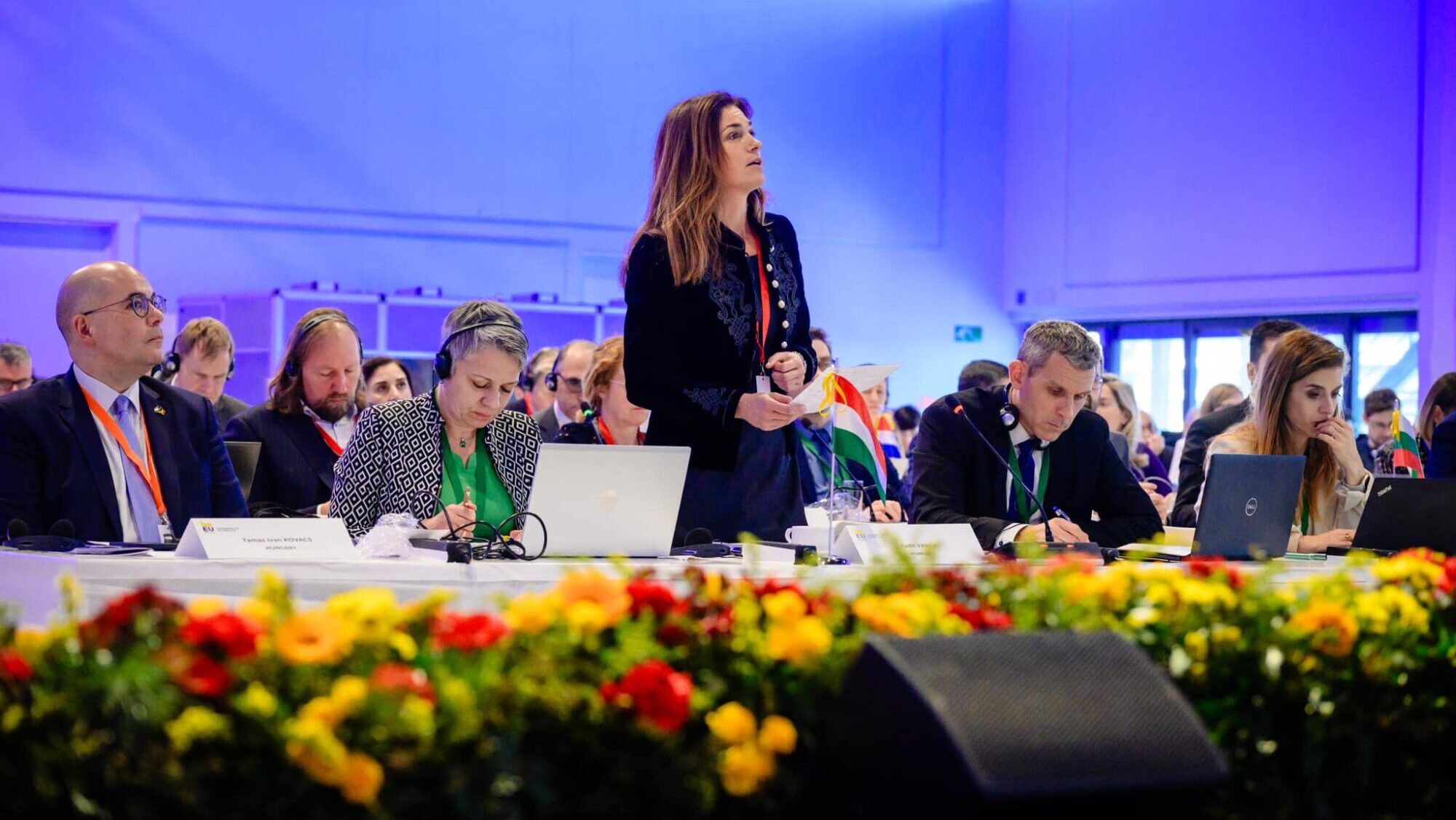
Former Hungarian Justice Minister Judit Varga at the COSAC conference representing the incoming Hungarian Council presidency, January 15th, 2024.
Photo: Judit Varga / Facebook, 15 January, 2024.
Members of the European Parliament are preparing for the next big push in their offensive against Hungary in a bid to prevent the country’s conservative government from assuming the Council’s rotating presidency in July, also barring PM Viktor Orbán from simultaneously becoming the European Council’s interim president if Charles Michel’s permanent successor is not found in time.
Along with Michel and Commission President Ursula von der Leyen, the European Parliament’s Strasbourg plenary is set to debate the Hungary situation on Wednesday, then vote on a resolution the day after. This could potentially include a call for the European Council (EUCO) to start another infringement procedure (Article 7) against Hungary to eventually suspend its membership rights—but chances of that actually transpiring remain slim.
As we wrote last week, Finnish MEP Petri Sarvamaa, from the nominally center-right EPP group, launched a petition among his colleagues calling for the resolution that would put the elaborate plan in motion. The petition was signed by 120 MEPs from all leftist groups and Sarvamaa’s own EPP—which, while not a majority of the 705 MEPs, will nonetheless be used as an argument in the following day’s negotiations about the final text that will be put to vote on Thursday.
If the plenary adopts the resolution, the MEPs would then pass the ball to the Commission and the European Council’s court to initiate the infringement procedure that assesses whether a member state is in a “serious and persistent breach” of EU values—of which Hungary has been consistently accused for the better part of the last decade on grounds of alleged rule-of-law violations and discriminations against sexual minorities.
If—and that’s a big if—all EU institutions manage to hop through all relevant bureaucratic loops in the coming months, the European Council will need only a qualified majority to strip Hungary of its voting rights, which would theoretically also mean that Budapest cannot fulfill its rightful mandate as the rotational president of the Council of the EU, and that PM Orbán cannot stand in for interim president in the EUCO.
In an interview on Sunday, the former Hungarian justice minister and lead candidate for the governing Fidesz party’s European Parliament delegation, Judit Varga, dismissed the renewed accusations as a politically motivated “witch hunt”. Hungary has already fulfilled all the reform requests Brussels has put forward, but is still waiting for the release of two-thirds of the country’s €30 billion frozen cash.
“Europe replaced democracy with hypocrisy and dialogue was replaced by a political witch hunt and blackmailing with European funds,” Varga said, adding that “Article 7 is just a blackmailing tool. … If you don’t fit the [EU] line then you will be somehow blackmailed and this is a typical example of how Article 7 is functioning.”
Btw, this has also been proven by the @EU_Commission which has already started to release the cohesion funds due to us. Looks like that when it comes to the hatred of Hungary, the liberal left not even believes in its own institution.
— Judit Varga (@JuditVarga_EU) January 9, 2024
The idea that the infringement procedure can be used against a country with political motivations is precisely why many EU members are reluctant to go as far as to restrict voting rights—something which has never been done in EU history and could set a dangerous precedent.
MEPs say Hungary is violating EU values, but since the current values seem to be different from the ones that existed when Article 7 was drawn up, who is to say no other countries will be challenged by the changing times in the future? Suspending voting rights can feel disproportionately harsh and undemocratic for some, especially when it can happen to you as well.
And since the European Council would first need unanimous approval to begin any punitive measures, the Parliament’s struggles to avoid Hungary and Orbán taking charge for a few months will likely bear little to no fruit in the end.
